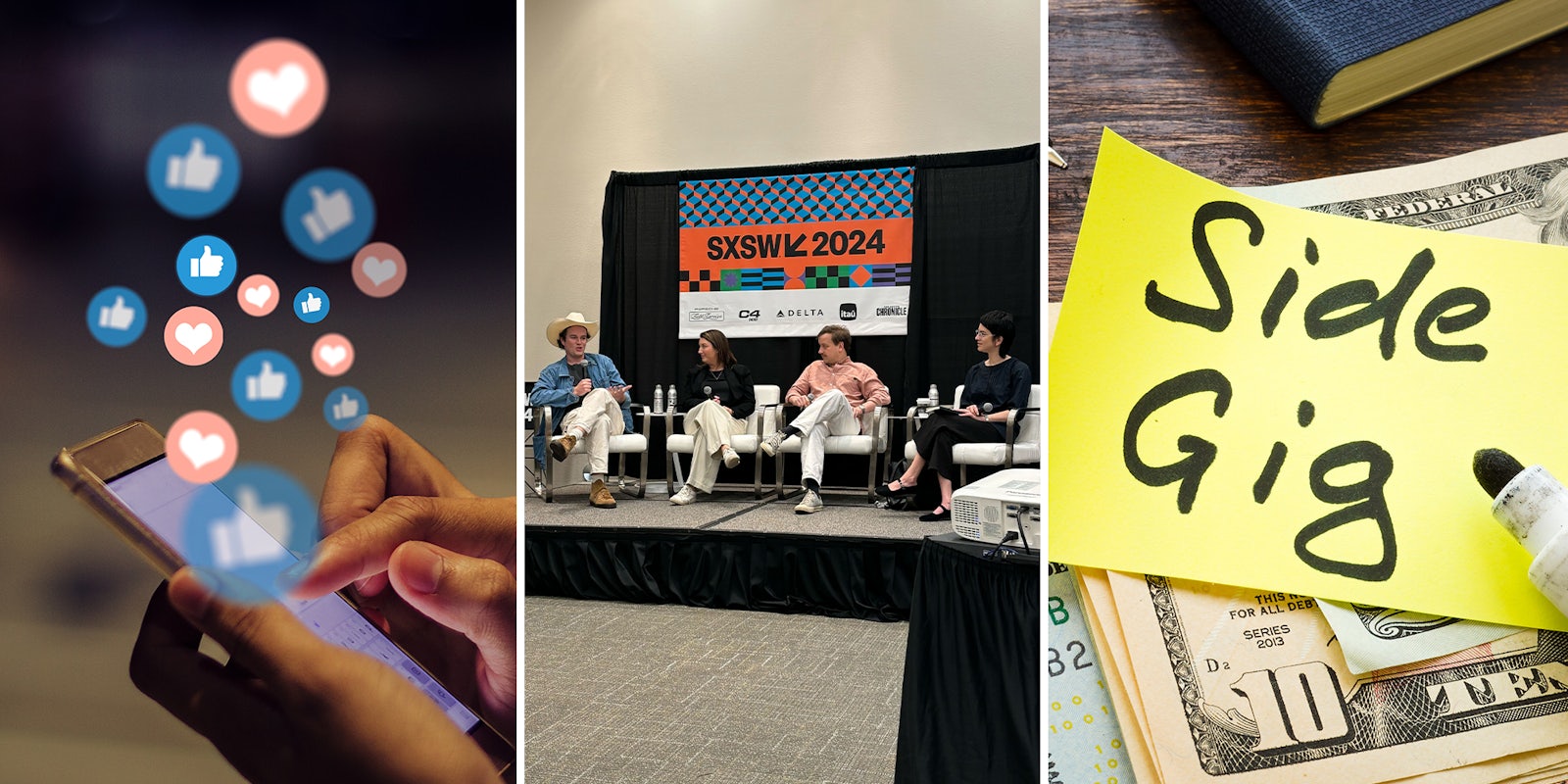From dropshipping to live-streaming, the past decade has seen the rise of the side-hustle—people picking up other gigs on the side to either earn additional income or exercise a creative interest.
But as these side-hustles become more popular, they can quickly morph from a place where one can freely express themselves to simply another part of their work life. Furthermore, one may think that beginning a side hustle means abandoning the idea of a boss; however, those in the industry say that isn’t actually the case.
At a Thursday panel hosted by Adina Glickstein of Spike Art Magazine, South by Southwest (SXSW) guests including creator Jack Coyne of Public Opinion Nyc and Track Star, Severin Matusek of Co-Matter, and Angelique Temple of WeTransfer discussed how the role of the side hustle is changing.
In short, no matter where you’re deciding to set up your side hustle, you’re still under the control of whatever platform you choose to use.
“You’re at the mercy of the platform and the algorithm,” summarized Coyne.
The panel noted that people joining these platforms have to understand that, if one wants to find success, they have to work for it more than they may think. This includes understanding the intricacies of the platform and being ready for any sudden changes that may happen to it, either due to algorithm changes or legal threats, such as the ones currently being experienced by TikTok in the United States.
This, the panel said, shows some of the limits of our current understanding of the current creative industry.
“I’ve become quite critical of the creator economy,” said Matusek. “It’s not a democracy. It’s not what platforms say it is.”
Some of the problems of the “creator economy,” the panel said, stem from the idea that it is not necessarily creator-run; rather, it is simply an unorganized group of different kinds of producers who are working on, and occasionally fighting against, the same platforms.
“I don’t think creators think of themselves as part of this economy,” Coyne explained. “They just want to make things, and I think the corporate side of it said, ‘This is the creator economy.’ There are benefits because it’s branded, and [companies] are aware of it, … but I don’t think creators are really involved in that.”
How to solve these difficulties, however, is a complicated question. Transparency is key to “demystifying” the creative process and the use of platforms, the panel said, but so, too, is diversifying and not becoming too loyal to one platform.
“If you’re totally reliant on one revenue stream…there’s a lot more pressure on that work, and more pressure on you to adapt that work to suit the platform—rather than what you originally cared about,” shared Coyne.
Matusek added that workers in this sector could benefit from unionization, and creative economy workers should consider building their own platforms. Temple also stated that, at the very least, those working for the platforms used by creators should be made to be active users of them on both the creative and user side.
“You need to learn the challenges and struggles of your users to understand what we need to do next,” Temple noted.
